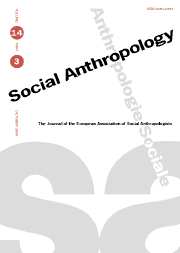Tourism and its discontents. Suri-tourist encounters in southern Ethiopia
Published online by Cambridge University Press: 01 February 2000
Abstract
Encounters between foreign tourists and people of different cultural background become very common in a globalised world. The nature of this exchange in cultural terms relates questions of identity construction and the emergence or creation of difference. This article addresses tourist-‘native’ encounters in a semiotic perspective, which helps to reveal its essentially contested aspects. The empirical study relates to the Suri people of southern Ethiopia, a small ethnic group of agro-pastoralists only recently ‘discovered’ by the tourists and displaying notable aggression towards them. Suri reject their role in the ‘tourist game’ of creating realist experience of the Other, and staunchly assert their own identity and would-be equality towards these affluent visitors.
- Type
- Research Article
- Information
- Copyright
- © 2000 Cambridge University Press
Footnotes
- 10
- Cited by


